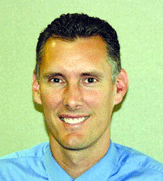If you have a medical problem, or something is bothering you or a member of your family, The Jackson County Times now has a local physician, Dr. John Spence, of the Panhandle Family Care Associates available to respond to your questions via e-mail.
Mammography Arguments
Another new year is upon us and like so many times before, controversy rears its ugly head. The most recent head scratcher involves the changes in mammogram screening recommendations as proposed by the United States Preventative Services Task Force (USPTF). This panel of doctors and scientists recently concluded that most women in their 40’s do not need mammograms and should wait until their 50’s to get one on a biannual basis. Furthermore, they suggest that breast self-exams are not effective. This is in staunch opposition to the recommendations enforced by the American Cancer Society which has set the standard for screenings – mammogram every year after age 40 and possibly a baseline for those deemed “high risk”. So where does this leave us, outside of confused?
The logic behind the newer recommendations is based on data suggesting that mammography more often than not leads to false positives and unnecessary biopsies without much improvement in women’s survival. False positives are a substantial source of anxiety for affected women. But what about those who have found lumps and subsequently have been treated for breast cancer? Most of these women stand by the previous recommendations and are less likely to be swayed.
Based on pure numbers, roughly 1300 women in their 50’s would have to be screened to prevent one death as opposed to 1900 women in their 40’s. What the USPTF is telling us is that mammography does save lives, but not enough of them. It stands to reason that they believe that screening is a burden to the healthcare system and additional screening is inherently too costly.
I have had women within my own practice that have found a suspicious lump through their own monthly self-checks. They underwent eventual biopsy and surgical intervention at an early stage. I believe that their diligence in monitoring may have saved them from a more aggressive, undetected cancer at a later stage. Tell that same woman that self-exams are useless and see what kind of response you’ll get. I can assure you that it won’t be pretty.
Regardless of which side of the fence you lay on, we may see a trend towards reduced insurance coverage for mammograms in 40 year old females. I will not let the USPTF guidelines change my approach at this time. I still think there is good science behind mammogram screenings. At this time, we do not have a better, more cost effective means to detect breast cancer. Until we do, I’ll be quite happy doing what I’m doing!
Subscribe to:
Comments (Atom)
